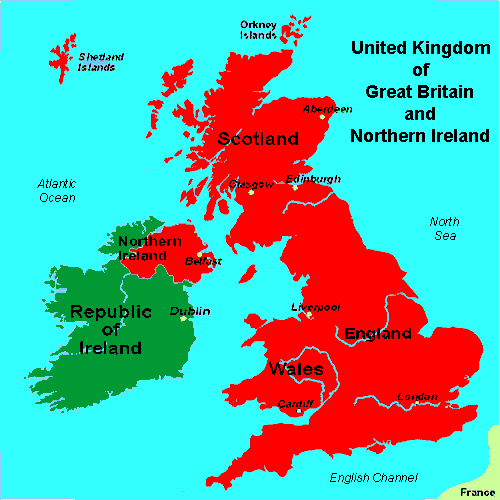Post-Brexit Trade Treaty Ratified | 29 Apr 2021
Why in News
The European Parliament has ratified the post-Brexit trade deal between the European Union and the United Kingdom (UK).
- The EU–UK Trade and Cooperation Agreement (TCA) is a free trade agreement signed in December 2020, between the EU, the European Atomic Energy Community (Euratom) and the United Kingdom (UK).
- The deal was ratified nearly five years after Britain decided to leave the European Union. It has already been ratified by the UK Parliament.
Key Points
- About the Trade and Cooperation Agreement (TCA):
- Provisionally Enacted: This deal was provisionally enacted in January 2020 in order to minimize trade disruptions between the EU and the UK.
- Provisional approval was set to expire on 30th April 2021, so the European Parliament’s ratification ensures that the flow of trade between the EU and the UK will continue uninterrupted.
- Key Provisions:
- Level Playing Field: It essentially means that in order to trade with the EU’s single market, the UK will have to follow the same rules and regulations to ensure that it does not have an unfair advantage over other EU businesses.
- Rules of Governance: These will dictate how any deal is enforced as well as the penalties that will be imposed if one party violates the terms of a mutually-approved agreement.
- Fishing Rights: The agreement gives free access to EU fleets to fish in UK waters, including up to six miles off the shoreline for a five-year transition period. At the end of the transition, everything will return to normal arrangements and the UK will have full control over its waters.
- Framework for Policing: It also provides for a framework governing law enforcement matters, which will allow UK and EU policing agencies to coordinate in the future.
- Agreement addresses other key aspects of international trade, including intellectual property protections and road transportation provisions.
- Limitations:
- The important sectors of the UK economy, such as legal and financial services, were left unaddressed.
- Currently, legal and financial service companies based in the UK are subject to the same restrictions as other firms outside of the EU.
- Provisionally Enacted: This deal was provisionally enacted in January 2020 in order to minimize trade disruptions between the EU and the UK.
- European Union (EU) and United Kingdom (UK):
- The United Kingdom is an island nation in northwestern Europe.
- It is made up of England, Scotland, Wales and Northern Ireland.
- The United Kingdom borders one European Union member state: Ireland.
- Relations between the EU and the United Kingdom of Great Britain and Northern Ireland (UK) date back to the foundation of the European Communities (EU predecessor) in 1957.
- The UK was a member state of the European Union after joining it in 1973, until it became the first country to voluntarily end its membership on 31st January 2020 after a referendum was held in 2016.
- North Ireland Issue:
- Geographically, Northern Ireland is part of Ireland. Politically, it’s part of the UK.
- Northern Ireland is the only part of the UK that has a border with an EU nation, Ireland. It has been called the “problem child” of Brexit.
- An open Irish border, over which people and goods flow freely, underpins the peace process, allowing people in Northern Ireland to feel at home in both Ireland and the UK.
- The insistence of Britain’s government on a “hard Brexit” that took the country out of the EU’s economic order meant the creation of new barriers and checks on trade.
- Both Britain and the EU agreed that the border could not be in Ireland because of the risk that would pose to the peace process.
- The alternative was to put it, metaphorically, in the Irish Sea between Northern Ireland and the rest of the UK.
- That arrangement has alarmed British unionists, who say it weakens Northern Ireland’s place in the UK and could bolster calls for Irish reunification.

